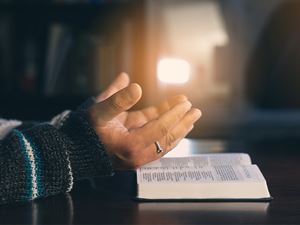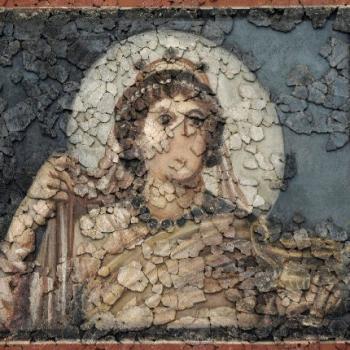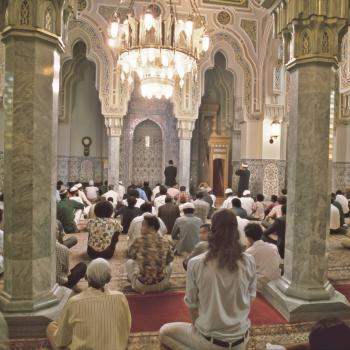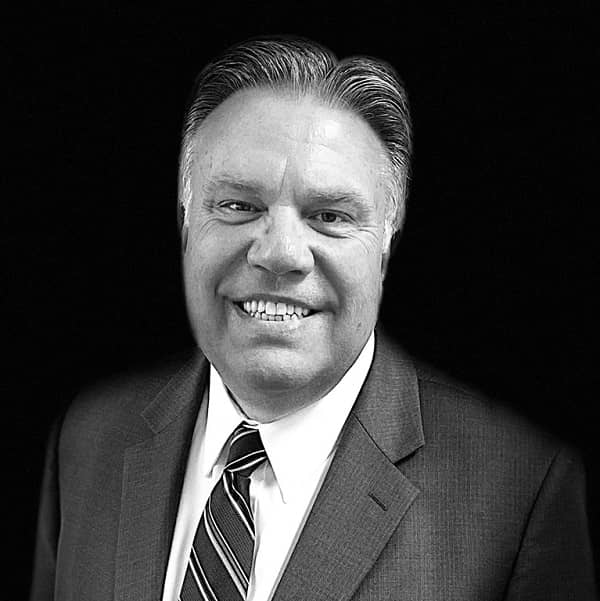
"The Lord is my shepherd; I shall not want." The beloved 23rd Psalm introduces the path of our shepherd.
He maketh me to lie down in green pastures; he leadeth me beside the still waters.
He restoreth my soul: he leadeth me in the paths of righteousness for his name's sake.
Yea, though I walk through the valley of the shadow of death, I will fear no evil:
for thou art with me; thy rod and thy staff they comfort me.
The Savior's path offers green pastures, still waters, and righteousness. But His path includes the valley of the shadow of death. Yet we need not fear evil—He will never leave us alone. For 7-day Christians, His path includes both fertile places and shadowed spaces; when we accept both and trust in His personal love and concern for us, we are ready to move in the direction toward eternal life.
Christ's Life on the Path
And Jesus went about all the cities and villages, teaching in their synagogues, and preaching the gospel of the kingdom, and healing every sickness and every disease among the people.
But when he saw the multitudes, he was moved with compassion on them, because they fainted and were scattered abroad, as sheep having no shepherd.
Then saith he unto his disciples, The harvest truly is plenteous, but the laborer's are few;
Pray ye therefore the Lord of the harvest, that he will send forth laborer's into his harvest. (Matthew 9:35-38)
The Savior recognized the nature and the prevalence of dark places among the people. In addition to their physical trials, He was concerned for their spiritual struggles, and what we might consider their mental health needs. He needed help, and He sought disciples and other followers to provide it.
As Jesus sought privacy to mourn the death of John the Baptist, thousands followed Him. As many would have been in dark places, He was "moved with compassion," healing all who were sick or in need. The multitude remained listening to Him, and He taught them beautiful, significant doctrine and instruction. As evening came and they had no food, in compassion He multiplied the few provisions available, to feed all of them (Matthew 14: 13-16).
He healed leprosy, paralysis, and disabilities including blindness. Some called out on the road; others were brought by friends or family. He cast a "legion" of devils out of an afflicted man, who He sent back to his home to relieve darkness for many nearby. He knew that the woman who touched His robe had been in the darkness of disease for 13 years, that the paralyzed man by the pool of Bethesda had been passed up for healing waters for 38 years (see John 5). Their time for healing had come.
As Jesus approached the city of Nain, a young man, his widowed mother's only son, was being carried out for burial. Knowing the mother's love and grief for her son, the challenges of a woman living alone, and above all her great faith, the compassionate Savior touched the bier and said, "Young man, I say unto thee, Arise." As the young man sat up and spoke, Jesus "delivered him" to His joyful mother (Luke 7:11-15). The Savior knew of the mother's dark places, and He arranged to arrive at the precise moment the healing should take place.
Our Dark Places
Russell M. Nelson, leader of an international Christian church, advised those on Christ's path:
We live in a time of turmoil. Earthquakes and tsunamis wreak devastation, governments collapse, economic stresses are severe, the family is under attack, and divorce rates are rising. We have great cause for concern. But we do not need to let our fears displace our faith. We can combat those fears by strengthening our faith.
Within and in addition to these areas of deep concern, we all have personal dark places which cause us pain. Dieter F. Uchtdorf, another international Christian leader, mentioned a few dark places and the brighter pastures God offers:
When you feel lost or forgotten . . . when you are despairing, deserted, doubting, damaged, or defeated, He will comfort you. He will heal you and give meaning to your journey. He will pour out His Spirit and fill your heart with exceeding joy. He gives “power to the faint; and to them that have no might he increaseth strength” [Isaiah 40:29].
Devout Christians sometimes wonder if severe pain may indicate they have displeased God. In his book The Problem of Pain, influential Christian writer C.S. Lewis assured us:
When Christianity says that God loves man, it means that God loves man . . . You asked for a loving God: you have one. The great spirit . . . the consuming fire Himself, the Love that made the worlds.
Lewis explained that God "knows what we are and that our happiness lies in him." To help us progress to become as He is "whether we like it or not, God intends to give us what we need, not what we now think we want (see pp. 46-47). The "only real treasure" is Christ.
A few moments of happy love, a landscape, a symphony, a merry meeting with our friends, a bathe or a football match [are ways that] our Father refreshes us on the journey with some pleasant inns, but will not encourage us to mistake them for home. (p. 94)
For those who worry about their differences from (and possible inferiority to) others, Lewis taught, "Be sure that the ins and outs of your individuality are no mystery to Him; and one day they will no longer be a mystery to you." Comparing individuality of keys to the locks for which they are intended, he continued,
Your soul has a curious shape because it is a hollow made to fit a particular swelling in the infinite contours of the divine substance, or a key to unlock one of the doors in the house with many mansions. For it is not humanity in the abstract that is to be saved, but you, the individual. (pp. 151-152)
Christian Compassion on His Path
As He helps us navigate our own green pastures and shadowy places, God guides us to find others we can help along their individual paths. As we follow His path, He helps us find other compassionate Christians who may welcome our assistance. Possibilities are endless—religious, educational, civic, and public service organizations have listings and sign-up opportunities.
Hunger
During the first half of 2022, nearly 24 million households (11.6 million having children under age 18) reported not having enough to eat. Over 7 million households receiving federal food/nutrition assistance experienced food insecurity (almost 4 million with children). Effects of malnutrition on health, including well-being as well as quality of life, make this deficit serious.
In Benton, Arkansas, the Hunger Relief Army was joined by a prominent local business as well as 100 volunteers from "community minded churches and individual families." During Christmas 2022, they donated time along with resources to assemble 28,000 meals to distribute to food banks and pantries,5 easing His path for many in hunger's dark place.
Homelessness
In early 2020, 580,466 people in the US were homeless: 70 percent as individuals, 6 percent of whom were youth under 25 living alone. The remaining 30 percent were families having children. Of particular concern are youth and children, who have developmental needs. Early trauma and deprivation may cause difficulties lasting a lifetime.
Homeless persons are living on streets and in shelters in all states and territories—all races and ethnicities and all genders.6 They struggle in discouraging dark places on His path.
Volunteers can help lighten darkness. For three years, students belonging to The Interact Club at Lewisville (Texas) High School have held a Homeless Necessities Drive, donating their time and energy to collect and sort through donations. In 2022 the Interact Club, with help from the community, furnished 5,250 donations to nearby resource and homeless centers.
Immigrant Poverty
Estimates indicate that all Holocaust survivors living in the US have reached age 75, more than half at least 85. A high number are living in poverty, and many are disabled, requiring more specialized assistance.
Another immigrant group with dark places includes refugees from Ukraine. Those with a US sponsor can remain for two years, apply for a work permit, and qualify for some kinds of assistance. Since 2022, volunteer networks have been connecting Ukrainians with US citizens willing to sponsor them.
A large Christian congregation conducted a "One Blood" drive: inviting people to donate personal and hygienic items to be given to the organization Kosher Cupboard to pass to Holocaust survivors and other elderly people in need. Kosher Cupboard, which emphasizes the oneness of religions, nationalities, and ethnicities, has adopted 50 Ukrainian refugee families, religion not relevant.
In our own dark places, those of persons we know and love, and those of groups who suffer, when we follow His path we remember His promise: "Surely goodness and mercy shall follow me all the days of my life: and I will dwell in the house of the LORD for ever."
1/20/2023 12:57:20 AM





